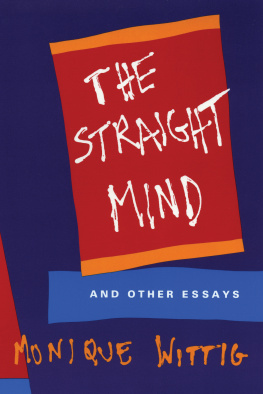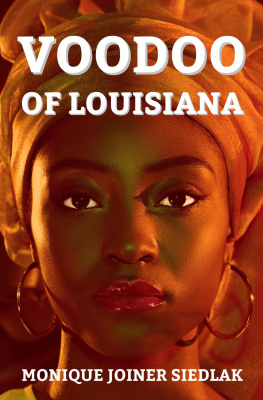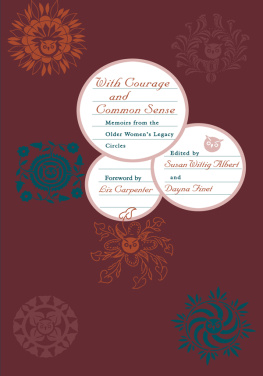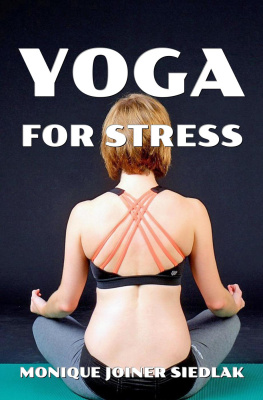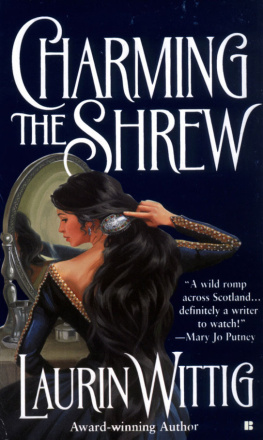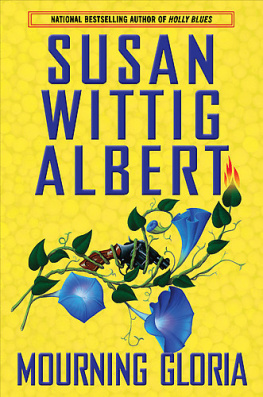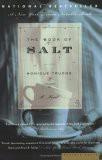Monique Wittig - The Straight Mind And Other Essays.
Here you can read online Monique Wittig - The Straight Mind And Other Essays. full text of the book (entire story) in english for free. Download pdf and epub, get meaning, cover and reviews about this ebook. year: 1992, publisher: Beacon Press, genre: Romance novel. Description of the work, (preface) as well as reviews are available. Best literature library LitArk.com created for fans of good reading and offers a wide selection of genres:
Romance novel
Science fiction
Adventure
Detective
Science
History
Home and family
Prose
Art
Politics
Computer
Non-fiction
Religion
Business
Children
Humor
Choose a favorite category and find really read worthwhile books. Enjoy immersion in the world of imagination, feel the emotions of the characters or learn something new for yourself, make an fascinating discovery.
- Book:The Straight Mind And Other Essays.
- Author:
- Publisher:Beacon Press
- Genre:
- Year:1992
- Rating:5 / 5
- Favourites:Add to favourites
- Your mark:
- 100
- 1
- 2
- 3
- 4
- 5
The Straight Mind And Other Essays.: summary, description and annotation
We offer to read an annotation, description, summary or preface (depends on what the author of the book "The Straight Mind And Other Essays." wrote himself). If you haven't found the necessary information about the book — write in the comments, we will try to find it.
The Straight Mind And Other Essays. — read online for free the complete book (whole text) full work
Below is the text of the book, divided by pages. System saving the place of the last page read, allows you to conveniently read the book "The Straight Mind And Other Essays." online for free, without having to search again every time where you left off. Put a bookmark, and you can go to the page where you finished reading at any time.
Font size:
Interval:
Bookmark:


I would like to thank Mary Jo Lakeland, Susan Ellis Wolf, Sande Zeig, Louise Turcotte, Pascale Noizet, Suzette Triton, Romany Eveleigh, Andrew Hrycyna, Beacon Press, and Susan Meigs for their help and support.
If a single name has been associated with the French Womens Liberation Movement, it is surely that of Monique Wittig. Her reputation is largely due to her literary works, which have been translated into several languages. But if Monique Wittig has made her mark as a writer in this second half of the twentieth century, the spreading of her theoretical texts will also show her to be one of the great thinkers of our time.
It is impossible to locate Wittigs influence entirely in literature, politics, or theory, for her work in fact traverses all three, and it is precisely from this multidimensionality that the great importance of her thought derives.
Much has been written about her literary works, yet not enough has been said of her theoretical and political writings. This will be a more political testimony, then, for I have been very fortunate in knowing Monique Wittig personally since the early 1970s. While it is possible to articulate the immediate influence of Wittigs thinking, it is still quite difficult to anticipate the full influence her work will have on the history of womens struggle for liberation. Her essays call into question some of the basic premises of contemporary feminist theory. What is at issue here is a total conceptual revolution.
TRANSLATED BY MARLENE WILDEMAN
In 1978, at the Modern Language Associations annual conference in New York, when Monique Wittig concluded her presentation The Straight Mind with the statement, lesbians are not women, the audiences warm reception was preceded by a moment of stunned silence. When this essay was published two years later in the French journal Questions fministes, this stunned silence had been transformedby some of the more radical feministsinto political pressure; a note had been added to soften the conclusion. Wittigs startling point of view was unimaginable at that time. In point of fact, a page had been turned in the history of the Womens Liberation Movement by one of Frances principal instigators. What exactly was this page? Why was it no longer possible to see the Womens Liberation Movement in exactly the same way? Precisely because the point of view had shifted.
Since the beginning of this century, the entire womens struggle, from the defense of womens rights to a feminist analysis of womens oppression, has taken as its foundation the point of view of women. That went without saying. This analysis was refined over the years and different tendencies emerged, as happens in all liberation movements, but never was this basic consensus called into question. It seemed, in any case, indisputable. And so it was that the statement lesbians are not women would, at one and the same time, theoretically and politically disrupt an entire movement.
Founded upon the latest concepts of materialist and radical feminism, among them the idea of classes of sex, Wittigs statement called into question a fundamental point feminism had never disputed: heterosexuality. Not as sexuality anymore, but as a political regime. Until then, feminism had considered the patriarchy an ideological system based on the domination of the class of men over the class of women. But the categories themselves, man and woman, had not actually been questioned. Here is where lesbian existence takes on its particular meaning, for if these two categories cannot exist without each other, and lesbians exist by and for women only, there has to be a flaw in this conceptual system.
In the early 1980s, many lesbians in France and Quebec began calling this point of view radical lesbianism and totally revised their strategy. Radical lesbians have now reached a basic consensus that views heterosexuality as a political regime which must be overthrown, and we all draw inspiration from the writings of Monique Wittig. For us, Wittigs body of work constituted a point of departure for analysis and action. All of history was to be reexamined.
When history is reexamined from this point of view, it is interesting to note that the groundwork of a critique of heterosexuality as a political institution had already been laid at the beginning of the 1970s by certain lesbian separatists in the United States. The existence of lesbian communities is strategically necessary. But if they are not within the context of a political movement that aims to abolish the heterosexual system, their significance is entirely different; it is a matter then of creating a new category. But only the destruction of the existing categories can bring about real change. This is what we have come to understand through Monique Wittigs work: it is not a question of replacing woman by lesbian, but rather of making use of our strategic position to destroy the heterosexual system. We [lesbians]... are runaway slaves... escapees from our class (One Is Not Born a Woman). This key sentence provides the political dimension of the lesbian point of view. When reading Wittig, it must always be borne in mind.
In the United States, Adrienne Rich put forward a feminist analysis of heterosexuality in her 1980 essay Compulsory Heterosexuality and Lesbian Existence. Rich analyses the concept of heterosexuality within the framework of contemporary feminist theory from the womens point of view, whereas radical lesbianism does without that point of view. It sees lesbianism as necessarily political and considers it outside the whole heterosexual political regime. For to speak of compulsory heterosexuality is redundant.
Consciousness of oppression is not only a reaction to [fight against] oppression. It is also the whole conceptual reevaluation of the social world, its whole reorganization with new concepts... (One Is Not Born a Woman). For me this summarizes the work of Monique Wittig. It was through militant groups that I came to know her. Her deep respect for each individual, her deep contempt for all forms of power, have forever altered my conception of militancy. And it is through her writing that I have also come to understand the necessity of going back and forth between the theoretical and the political. Political struggle cannot be conceived without this, and, as theory is gradually transformed, we must also transform our political struggle. This is a challenge that requires constant vigilance and a constant willingness to reconsider our actions and our political positions. It is in this sense that radical lesbians questioning of the feminist movement must be understood.
We must produce a political transformation of the key concepts, that is of the concepts which are strategic for us (The Straight Mind). By not questioning the heterosexual political regime, contemporary feminism proposes rearranging rather than eliminating this system. Likewise, the contemporary development of the notion of gender, it seems to me, masks, or camouflages, the relationships of oppression. Often gender, even as it attempts to describe the social relations between men and women, lets us ignore, or diminish, the notion of classes of sex, thereby divesting these relationships of their political dimension.
I would like to mention here one of the critical elements of Wittigs body of thought, neatly summarized by the following phrase: A text by a minority writer is effective only if it succeeds in making the minority point of view universal (The Universal and the Particular). This exemplifies Wittigs extraordinary effectiveness. In claiming the lesbian point of view as universal, she overturns the concepts to which we are accustomed. For up to this point, minority writers had to add the universal to their points of view if they wished to attain the unquestioned universality of the dominant class. Gay men, for example, have always defined themselves as a minority and never questioned, despite their transgression, the dominant choice. This is why gay culture has always had a fairly wide audience. Wittigs lesbian thought does not aim to transgress but clearly to do away with the categories of gender and sex on which the very notion of universality rests. Sexes (gender), difference between the sexes, man, woman, race, black, white, nature are at the core of [the straight minds] set of parameters. They have shaped our concepts, our laws, our institutions, our history, our cultures (Homo Sum). To reexamine the parameters on which universal thought is founded requires a reevaluation of all the basic tools of analysis, including dialectics. Not in order to discard it, but to make it more effective.
Font size:
Interval:
Bookmark:
Similar books «The Straight Mind And Other Essays.»
Look at similar books to The Straight Mind And Other Essays.. We have selected literature similar in name and meaning in the hope of providing readers with more options to find new, interesting, not yet read works.
Discussion, reviews of the book The Straight Mind And Other Essays. and just readers' own opinions. Leave your comments, write what you think about the work, its meaning or the main characters. Specify what exactly you liked and what you didn't like, and why you think so.

